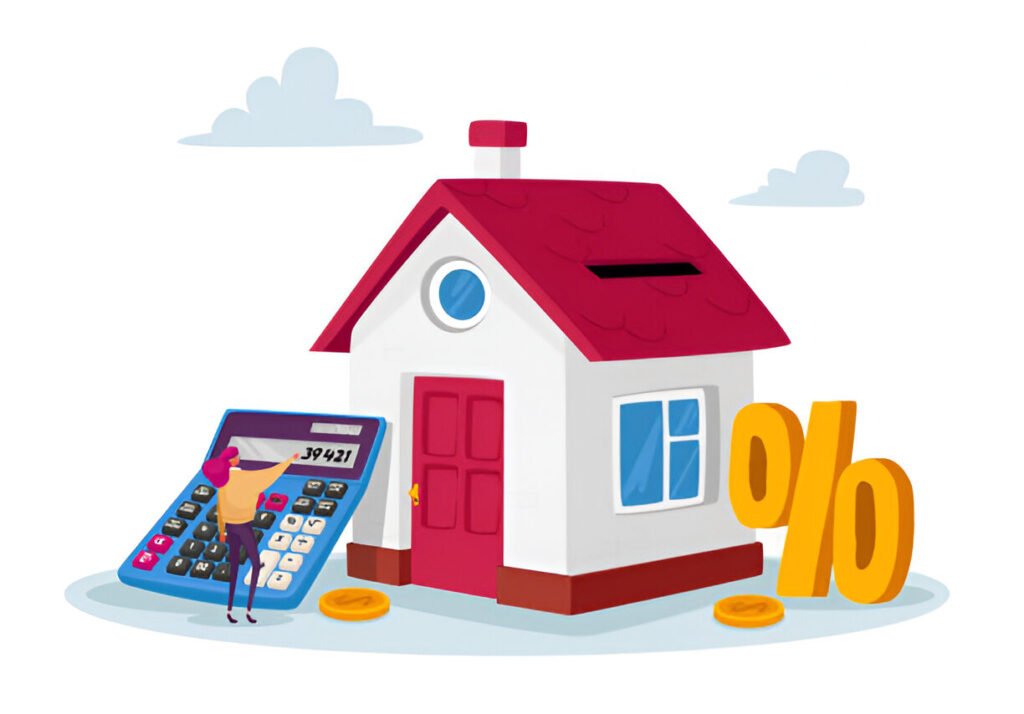When mortgage rates shift or your financial situation changes, refinancing your home loan might cross your mind. This significant financial decision requires careful consideration of both its advantages and potential drawbacks. Let’s explore the key factors that could help you make an informed choice about refinancing your mortgage.
The Advantages of Refinancing
Lower Monthly Payments
One of the most compelling reasons to refinance is the potential for reduced monthly payments. When interest rates fall below your current rate, refinancing could lead to substantial monthly savings. For example, refinancing a $300,000 mortgage from 5% to 4% could save hundreds of dollars each month.
Interest Rate Reduction
Securing a lower interest rate not only decreases monthly payments but also reduces the total interest paid over the life of the loan. Even a 1% reduction in your interest rate can translate to tens of thousands of dollars in savings over a 30-year mortgage term.
Debt Consolidation
Refinancing can provide an opportunity to consolidate high-interest debts, such as credit card balances or personal loans, into your mortgage. This strategy can simplify your finances and potentially reduce your overall interest payments, though it requires careful consideration of the long-term implications.
Cash-Out Options
Home equity built up over time can be accessed through cash-out refinancing. This option allows homeowners to borrow against their equity for home improvements, education expenses, or other significant costs, often at lower interest rates than personal loans or credit cards.
The Drawbacks to Consider
Closing Costs
Refinancing isn’t free. Closing costs typically range from 2% to 5% of the loan amount, including appraisal fees, title insurance, and lender charges. These expenses can take several years to recoup through monthly savings, making refinancing less attractive for those planning to move in the near future.
Extended Loan Term
Refinancing to a new 30-year mortgage means extending your debt obligation, potentially paying more in total interest over the life of the loan. While monthly payments might decrease, the long-term cost should be carefully evaluated.
Strict Qualification Requirements
Today’s lending standards are often rigorous. Qualifying for refinancing requires good credit scores, stable income, and sufficient home equity. Some homeowners might find these requirements challenging to meet, particularly if their financial situation has changed since their original mortgage.
Risk of Lower Home Values
If your home’s value has decreased, you might have limited refinancing options or face less favorable terms. In some cases, you might need to bring cash to closing to maintain an acceptable loan-to-value ratio.
Making the Decision
Break-Even Analysis
Calculate how long it will take for monthly savings to offset refinancing costs. If you plan to stay in your home beyond this break-even point, refinancing might make financial sense. For example, if closing costs are $4,000 and monthly savings are $200, it would take 20 months to break even.
Personal Financial Goals
Consider your long-term financial objectives. Refinancing should align with goals like retirement planning, debt reduction, or building wealth. Sometimes, maintaining a higher monthly payment to pay off your mortgage sooner might better serve your financial strategy.
Common Refinancing Scenarios
Different situations can make refinancing particularly attractive:
- Interest rates have dropped significantly below your current rate
- Your credit score has improved substantially since your original mortgage
- You want to switch from an adjustable-rate to a fixed-rate mortgage
- You need to remove a co-borrower from the loan due to divorce or other circumstances
Frequently Asked Questions
How often can I refinance my home?
There’s typically no legal limit on how often you can refinance your home. However, many lenders require a “seasoning” period of 6-12 months between refinances. Additionally, frequent refinancing can be costly due to repeated closing costs and might impact your long-term financial goals.
Will refinancing hurt my credit score?
Refinancing usually causes a temporary dip in your credit score due to the hard inquiry and new account opening. However, this impact is typically minimal and short-lived. Making regular payments on your new loan can help your credit score recover and potentially improve over time. The long-term benefits of refinancing often outweigh this temporary credit impact.
Final Thoughts
Refinancing can be a powerful financial tool when used appropriately. Success lies in carefully weighing the immediate benefits against long-term implications while considering your personal financial situation and goals. Before proceeding, consult with multiple lenders to compare offers and consider speaking with a financial advisor to ensure refinancing aligns with your broader financial strategy.


